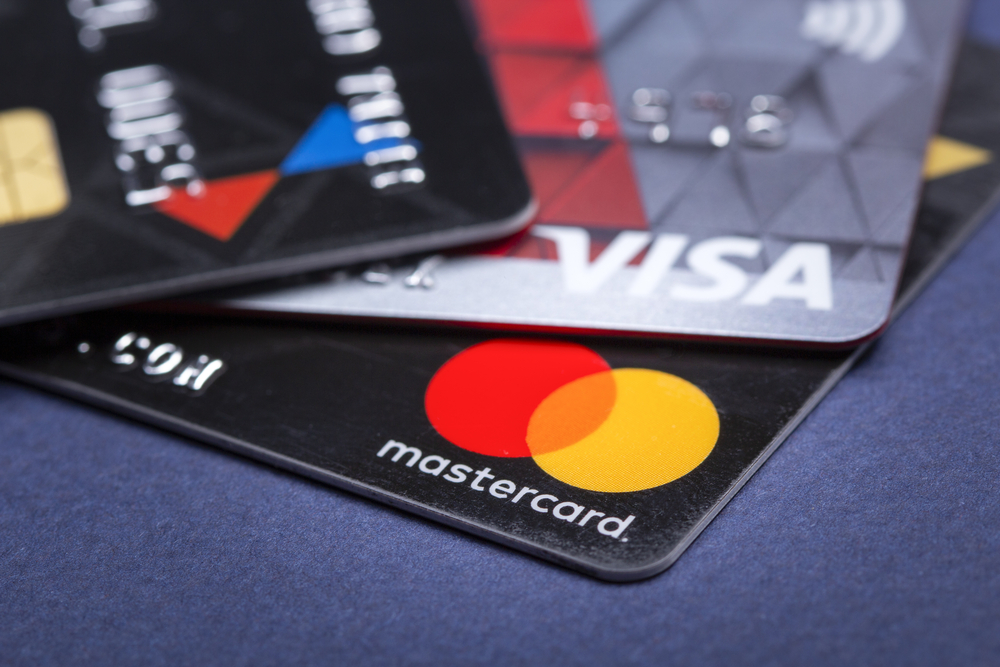
Merchant Account Termination. When Your Processor Breaks Up With You For No Reason
Feb 4, 2020 10-MINUTE READ
A merchant account termination was the last thing on your mind. After all, you have been running a good business. Your chargebacks are low. You’re following the rules, and as far as you know, doing everything right.
Then, out of nowhere, you get a notification about the closure of your merchant account. Overnight, you lose the ability to accept credit card payments. If you’re lucky, you get a 10-day notice, although often times it’s immediate.
But you’ve done nothing wrong. You’re not placed on MATCH or the Terminated Merchant File (TMF). You’re not incurring excessive chargebacks or fraud. Instead, your merchant account was terminated, and payment processing shut down for seemingly no reason.
Can they do this? How can they do this? Let’s take a quick look at what sudden merchant account closures mean for you. And, what your options are if this happened to you.
What has been happening in the industry
There were several high-profile cases of merchant account terminations in the last few years. High-risk categories (especially those undergoing regulatory changes) lost their processing ability. So, if you operate in crypto currencies, adult entertainment, smoking (e-cigarettes and CBD) or trial supplements then continue reading.
Also, we are talking about payment shut downs not involving a MATCH-list or TMF. If you were MATCH-listed, here’s what you need to know in this post.
In 2019, a significant amount of US-based companies lost their ability to accept credit card payments. Elavon was one of the largest processors serving CBD and hemp-related online merchants. Then, it notified clients of its intention to stop business relations with them. As you can imagine, it sent shock waves through the industry. Many assumed the industry was on the road to regulation with the passing of the Farm Bill. There aren’t many options for CBD processors. So, when the primary acquiring banks say no, that’s it. This situation left hundreds of businesses scrambling for a new solution.
Elavon issued a notice period (45 days, later extended to 60). Some business owners get a closure notice only at the time the account is being closed.

CBD, e-cigarettes and adult sites also faced scrutiny
Also, before there was CBD, there were e-cigarettes. These are also classified as high-risk businesses. The industry faced attacks in 2018 due to regulatory changes. As such, acquiring banks were reluctant to take on certain risks involving these business types.
Many payment professionals continue to see product overlap from both verticals. For example, vape products may come infused with CBD. While CBD products can be consumed through vaping devices. This has made securing good processors even more difficult.
You can read more in our post on merchant accounts for e-cig businesses. Some of the details are useful if you’re currently facing merchant account termination.
In the latter part of 2019, there was another blow to high-risk payment processing. PayPal ceased to support payments by Pornhub performers and affiliates. Again, online business owners got stranded when it came to payments.
Shouldn’t they already know my business?
Yes, payment processors do ask a million and one questions when you apply for a merchant account. So, you would assume that if after that they have approved you, then you should be in the clear as long as you do not breach any rules. But, rules change. Senior management within your payment processor’s operation can change and make new business rules about their appetite for risk and liability.
It isn’t a new process for companies to simply cease doing business with a merchant that they’ve worked with for years. This can happen in any industry. For example, this business owner discovered and shared in his Reddit post how Intuit closed his account for offering VoIP billing services.
In his case, they flagged his account, manually reviewed, and terminated the service. According to this party, Intuit closed his account despite his low chargeback ratio. He was also meeting all other requirements for maintaining his account. Risk doesn’t only have to do with chargebacks, processors can deem a business line to fall outside of their risk appetite and thus terminate merchants operating in that vertical.
What should you do in the event of merchant account termination?
Dealing with a payment termination starts with finding out why. So, begin by making contact with your merchant services provider like the aforementioned Reddit user did. By doing so, he found out more details. The company did an audit at its year-end. Following that audit, Intuit flagged the owner’s company. They shut down the payment processing, because they no longer supported VoIP services.
Your next step is to gather your monthly statements for the last six calendar months. This documentation is necessary when applying for a new payment provider. So, download this information if you can still access your account. If you cannot, formally request these monthly reports from your provider. It’s important to specify you want an account statement for each separate month and not an excel spreadsheet. If you cannot get statements, take a screen shot of your payment processor portal showing your transactional data (sales, transaction counts, chargebacks and refunds). These should be separated by calendar month.
Protect your recurring business
Additionally, you likely have subscribers if your business offers subscriptions or rebills. Given these customers are repeat buyers, preserve their data. Pull a list of your subscribers who signed up for recurring orders. Store their data safely if you are collecting it. Make sure to meet all PCI standards in the process. It’s easier to migrate subscriptions to another processor if you use the customer vault feature in your gateway. When you find a new provider to integrate your subscribers, then you can control the damage.
There are other ways to tackle merchant account termination where you’re not MATCH-Listed. Contact us at DirectPayNet and we’ll help you identify the right steps for your business.
Merchant account termination is not a death sentence
Major payment aggregators like Shopify often drop accounts with no warning. Often it is because the business model is high-risk and flew under their radar. And once your business reaches a certain sales volume, certain payment service providers like PayPal and Stripe are not ideal. (In fact, these payment aggregators are ticking time-bombs.) You need a full-service merchant account. This way you can control the checkout process and keep all customer data for your own use.
So, what do you do if you face a sudden merchant account termination?
These are options to ensure you can still collect payments if they close your account.
1. Diversify your payment options
Ensure that you have multiple payment options available for customers. Diversifying your online checkout allows you to have more than one method to pay in case any channel is down or closed.
- Domestic Merchant Account: A domestic merchant account stands to give you a lot more benefits than only offshore solutions. Think of higher sales. For UK-based merchants for example, European customers can pay debit and credit cards, which banks tend to limit for certain overseas transactions.
- Offshore Merchant Account: Do you operate both locally and overseas, or are you thinking of doing so? Then an offshore merchant account makes it easier to accept payments from other jurisdictions.
- ACH Payment: Allowing customers to pay using the Automated Clearing House (ACH) network is good practice in the US. This direct deposit system generally has lower chargebacks. Plus, it offers your customers another avenue to pay other than by debit or credit thus increasing your conversions.
- E-Check: Linked to ACH, the electronic version of a paper check provides a seamless online payment process. It’s an online payment method whereby the customer pays you from their checking account. Funds are transferred via the ACH network into your account.
- Virtual Currency: Virtual currencies like bitcoin are becoming more and more acceptable methods of payment. Consider adding this option for clients who prefer this payment method. That is if you can find a reliable and secure provider to permit these types of sales.
2. Maintain contact with your account manager
We cannot stress how important it is to maintain contact with your account manager or service provider. It is often difficult to stay abreast of industry news while running your business. There are often regulatory and industry changes. Credit card companies make changes and implement updates, and so too will your acquiring banks and payment processors. Companies regularly update their list of unacceptable business services.
It is a lot to keep track of.
So, with how fast the payments industry moves, you could become a victim, even having done nothing wrong. To ensure you’re always on top of things, we recommend that merchant account holders keep in contact with their account managers. This ensures you stay updated. And, you can plan accordingly instead of being unprepared.
If your merchant service provider doesn’t assign you an account manager, ask for one. If one isn’t assigned, consider changing services for better hands-on help.
3. Work with a merchant account advocate
Yes, we might be a little bit biased to DirectPayNet. But, that’s just because we’re committed to obtaining better payment solutions. There are other good advocates on the market. Just ensure that like us, they pay attention to the details. They should know your vertical and specialize in high-risk businesses too.
We’ve helped merchants negotiate grace periods and find new solutions when they are about to lose their accounts. It makes a significant difference in keeping their business afloat during the transition.
Final thoughts
Finding a merchant service provider specializing in high-risk business is challenging. But it’s not impossible. You may tempted to lie on your application out of desperation or take shortcuts. You will quickly learn this isn’t the way. Whether it’s through an audit or policy changes. Violating the rules will or supplying false information will definitely result in MATCH-list or TMF. Don’t lose your current merchant account, because it’s a challenge to get a new one.
The DirectPayNet team specializes in helping high-risk businesses with their payment processing. We have local solutions in the US, UK, Europe, Canada, and other offshore jurisdictions. We are the business advocate you need in your corner. When things go wrong, your money is at stake. We are there before, during and after the application approval process.




